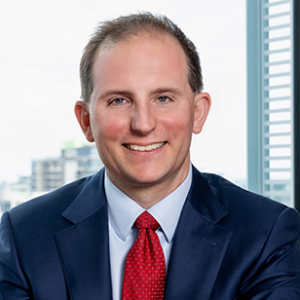A Tradition of Volunteering: The Case for Pro Bono
Sep 21, 2021 I Justice Rising I Eric G. Osborne
“At the end of every three years you shall bring out all the tithe of your produce in the same year and lay it up within your towns. . . and the sojourner, the fatherless, and the widow, who are within your towns, shall come and eat and be filled, that the Lord your God may bless you in all the work of your hands that you do.”
Deuteronomy 14:28–29.
The concept of tithing — that one should give back a tenth of the fruits of one’s labors — is a hallmark of the Judeo-Christian heritage, and similar concepts are shared by other major religions. In Islam, there is zakat, one of the Five Pillars of Islam, by which many Muslims must give 2.5% of their wealth to the poor every year. Buddhism and Hinduism share the concept of Dana, “the practice of cultivating generosity.”
But did you know that the legal profession has its own equivalent of tithing, which is written into the ABA’s model rules? Model Rule 6.1 states that every lawyer has a professional obligation to provide pro bono publico service in the amount of 50 hours a year. The rule is aspirational, not mandatory, but the point is clear — in exchange for the privilege of being permitted to practice law, every attorney is supposed to return 50 hours of their time every year to those in need. Ask yourself — do you meet this requirement every year?
Perhaps your schedule makes it difficult, or your practice is not conducive to pro bono work. If so, the rule anticipates this. Comment 9 of Rule 6.1 states that if it is not feasible for a lawyer to engage in pro bono services, “a lawyer may discharge the pro bono responsibility by providing financial support to organizations providing free legal services to persons of limited means. Such financial support should be reasonably equivalent to the value of the hours of service that would have otherwise been provided.”
So the model rule, widely adopted among the rules of professional responsibility in the states, provides that lawyers should either provide 50 hours of pro bono service of or donate an amount equivalent of 50 hours of service to “organizations providing free legal services to persons of limited means,” such as legal aid. Again ask yourself — how much do you donate to legal aid? If you are not providing 50 hours of pro bono service each year, then are you donating the equivalent in cash?
The concepts of tithing, zakat, and Dana have existed for thousands of years in cultures across the world precisely because there have always others in need. Rule 6.1 is the legal profession’s own recognition that there are many people of limited means in our country who are in need of legal services, and lawyers have special privileges and special means to give back. Just as religions make demands on their adherents, our profession makes demands upon us. But the numbers tell us that too few attorneys actually meet the aspiration of Rule 6.1.
What would happen, however, if we all simply did as the rule requires? I submit it would have a transformative effect on the legal profession and access to justice. Consider for example my home state of Tennessee. Combined, Tennessee’s local LSC grantee legal aid organizations have a budget of approximately $17 million a year and are able to address about half of the cases that are referred to them. Tennessee has 18,000 lawyers, with average hourly billable rate of $215. Take half of that for overhead and another third for taxes, and you have about $75 an hour going to Tennessee attorneys on average. If each lawyer in Tennessee donated about $75 per hour for 50 hours, that would be $3750 a person and about $67 million overall, which is four times the total budget of Tennessee’s legal aid organizations, or more than enough to cover the access to justice gap twice over.
Put it all together. (1) We have a problem where people of limited means in the United States lack access to legal assistance. (2) We have a rule that applies to all attorneys asking them to give 50 hours of time or the cash equivalent. (3) And if every lawyer gave the cash equivalent that the rule contemplates, there would be enough funding from that alone to more than cover the access to justice gap.
In other words, if all of us simply followed the Rules of Professional Responsibility, the problem would be solved.
Perhaps we should do that.
















